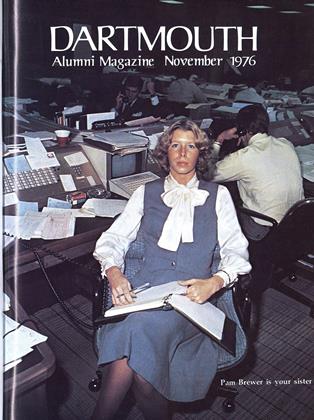Among the giants of the Revolution perhaps Franklin and Jefferson were the most notably successful in being at once citizens of the United States and citizens of the world. One may at least speculate that this came about because both were also citizens, so to speak, of Paris. For to say "Paris" in the late 18th century was virtually synonymous with saying "the world." Jefferson lived in Paris from 1784 to 1789, and it is this magnificent city, the Paris of the ancien regime, which Rice faithfully recreates.
Though his life-long preference was for the slower-paced, quasi-rural life of Monticello, and although the expatriate's nostalgia occasionally surfaces in Jefferson's letters to friends back home, seldom has an exile been more nearly content. So pervasive was the influence of the Paris of Louis XVI on the brilliant gentleman farmer from Virginia that, as the historian Henry Adams concluded, "with all his extraordinary versatility of character and opinion," Jefferson "seemed during his entire life to breathe with perfect satisfaction nowhere except in the liberal, literary, and scientific air of Paris in 1789."
Rice, assistant librarian emeritus of rare books and special collections at Princeton, started work on Thomas Jefferson's Paris some 30 years ago when assembling documents for the Jefferson Papers. His book evokes in word and picture the city of Paris at the end of the anregime and on the brink, as it turned out, of the French Revolution. The Palais Royal, Rue Saint-Honoré, Place Louis XV, the Tuileries, the Louvre: all are recreated as they appeared in drawings, engravings, paintings, and documents of the late 18th century. The text draws copiously on Jefferson's contemporary correspondence, account books, and other writings and thus becomes as much an account of Jefferson's tenure as minister as a history of the city of Paris. But so perfectly matched were the city and the man that in the end it is fair to say, I think, that Rice's emphasis is on neither. His book is about Jefferson in Paris and the Paris that remained a part of Jefferson until his final day.
Perhaps that Paris is irretrievably gone. Perhaps. But it all lives for a moment in the mind's eye through the images and text of this book. For, as a commentator declares, perhaps Howard Rice "knows more about the Paris of that period than did Jefferson or the Parisians themselves."
THOMAS JEFFERSON'S PARISBy Howard C. Rice '26Princeton, 1976. 156 ppHardcover, $18.50; paper $8.75
 View Full Issue
View Full Issue
More From This Issue
-
 Feature
FeatureJUST LIKE THE REST OF US
November 1976 By A. KELLEY FEAD -
 Feature
FeatureBibliographical Branding Irons
November 1976 By DAVID WYKES -
 Feature
FeatureThe and the
November 1976 By JAMES L. FARLEY -
 Feature
FeatureFive Deadly Threats
November 1976 By John G. Kemeny -
 Article
ArticleEight-y!
November 1976 -
 Article
ArticleAlan versus Them 'It would be boring otherwise'
November 1976 By PIERRE KIRCH'78
R.H.R.
-
 Article
ArticleFurther Mention
May 1976 By R.H.R. -
 Books
BooksNotes on a humanizing craft, a National Book Award, the Adamses, Avant-garde dancers, Irving Howe's tribute, and the Texas nation.
June 1976 By R.H.R. -
 Books
BooksNotes on an expatriate's look homeward and on a bookman in a vast, sparsely inhabited region
October 1976 By R.H.R. -
 Books
BooksAn Attendant Lord
November 1976 By R.H.R. -
 Books
BooksNotes on a Pulitzer not given and on Dr. Bob, a gruff, humane Yankee who helped found AA
JUNE 1977 By R.H.R. -
 Books
BooksSeeing Tilley Plain
OCT. 1977 By R.H.R.
Books
-
 Books
BooksFACULTY PUBLICATIONS
November, 1922 -
 Books
BooksAlumni Publications
June 1935 -
 Books
BooksECONOMIC DEVELOPMENT AND AMERICAN FOREIGN POLICY 1943-62.
FEBRUARY 1967 By HOWARD BLISS -
 Books
BooksBLACK ANGELS OF ATHOS
January 1935 By John Barker Stearns -
 Books
BooksLATIN-FOURTH YEAR.
June 1931 By Lawrence Leighton -
 Books
BooksThe Poet-Saints of Maharashtra
MARCH, 1927 By S. L. Joshi
R.H.R.
-
 Article
ArticleFurther Mention
May 1976 By R.H.R. -
 Books
BooksNotes on a humanizing craft, a National Book Award, the Adamses, Avant-garde dancers, Irving Howe's tribute, and the Texas nation.
June 1976 By R.H.R. -
 Books
BooksNotes on an expatriate's look homeward and on a bookman in a vast, sparsely inhabited region
October 1976 By R.H.R.


